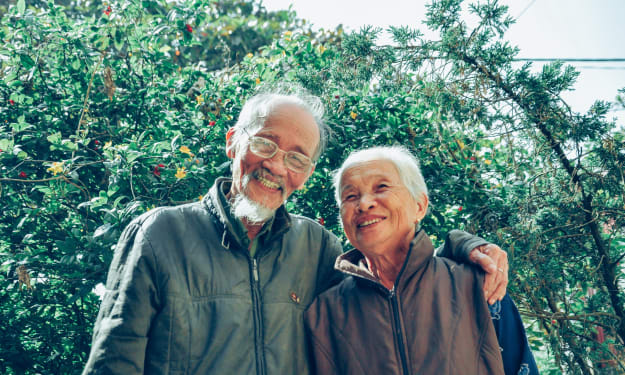How to avoid cancer in the body?
How not to acquire cancer?

Cancer prevention involves adopting a healthy lifestyle and raising awareness about known risk factors. While cancer prevention cannot be completely guaranteed, some measures can help reduce the risk:
1 - Not smoking or quitting smoking: Smoking is one of the leading causes of cancer, so avoiding tobacco and contact with second-hand smoke is crucial.
2 - Healthy eating: Eat a balanced diet rich in fruits, vegetables, whole grains, and low-fat foods. Limit consumption of processed foods, foods high in fat and sugar.
3- Weight management: Maintain a healthy weight through a combination of a balanced diet and regular exercise. Overweight and obesity increase the risk of developing several types of cancer.
4-Physical activity: Exercise regularly. Physical activity helps to strengthen the immune system and reduce the risk of cancer, especially colon and breast cancer.
5 - Protection from sun exposure: Use sunscreen, protective clothing, and avoid prolonged exposure to the sun, especially during peak ultraviolet radiation times.
6-Vaccination: Get the recommended vaccines, such as the human papilloma virus (HPV) vaccine and the hepatitis B vaccine, which are associated with certain cancers.
7- Moderation in alcohol consumption: Limit your consumption of alcoholic beverages. Excessive alcohol consumption is linked to an increased risk of several types of cancer, including cancer of the mouth, throat, esophagus, liver, and breast.
8- Regular Exams: Perform medical exams and cancer screening tests as recommended by your doctor. Routine exams can help identify any signs of cancer early and increase the chances of successful treatment.
9- Avoid exposure to carcinogens: Take steps to avoid exposure to chemicals and carcinogens present in certain work environments, harsh cleaners, pesticides, and other potential sources. Follow safety guidelines and use appropriate protective equipment when necessary.
10 - Reduce stress: Chronic stress can weaken the immune system and increase the risk of various diseases, including cancer. Practice stress management techniques such as relaxation exercises, meditation, recreational activities, and seeking emotional support when necessary.
11 - Breastfeed if possible: If you are a mother, try to breastfeed your baby. Breastfeeding can help reduce the risk of breast cancer for both mother and baby.
12 -Know your family history: Be aware of your family history of cancer. Some cancers have a genetic predisposition, and being aware of this can help with additional preventive measures or genetic testing if needed.
Remember that each person is unique, and cancer prevention can vary according to individual factors and family history. It is important to see a doctor regularly to assess your personal risk and get specific guidelines.
It is important to remember that these measures may reduce the risk of developing cancer, but they do not provide absolute guarantees. Cancer can occur even in people who follow a healthy lifestyle. Therefore, it is critical to stay informed, get regular checkups, and seek medical advice for early diagnosis and proper treatment if necessary.
Treatment for cancer?
Treatment for cancer varies according to the type and stage of cancer, as well as the patient's health conditions and preferences. The main treatments for cancer include:
1 - Surgery: Surgery is performed to remove the tumor and surrounding tissues. It is often used in combination with other treatments, such as radiation therapy and chemotherapy.
2 - Radiation therapy: Radiation therapy uses high-energy radiation to destroy cancer cells. It can be used before or after surgery, or as the main treatment to reduce the size of the tumor.
3- Chemotherapy: Chemotherapy uses drugs to kill cancer cells. It can be given orally or intravenously and is usually used in combination with other treatments.
4- Immunotherapy: Immunotherapy stimulates the immune system to attack cancer cells. It can be used alone or in combination with other treatments.
5- Targeted therapy: Targeted therapy uses drugs to specifically attack cancer cells, targeting proteins or other molecules that the cells use to grow.
6- Stem cell transplant: Stem cell transplantation involves replacing cells damaged or destroyed by chemotherapy or radiation therapy with healthy stem cells from the patient themselves or from a donor.
7- Hormone therapy: Hormone therapy is used to treat hormone-sensitive cancers, such as breast and prostate cancer. It prevents hormones from stimulating tumor growth.
8- Reconstructive surgery: Reconstructive surgery can be performed to restore the appearance or function of a body part affected by tumor removal surgery.
Cancer treatment can have side effects, including fatigue, nausea, hair loss, and other symptoms. It is important to discuss possible side effects with your doctor before treatment and seek advice on how to manage them. Cancer treatment can also be emotionally challenging, and it is important to seek emotional and psychological support if needed.
About the Creator
Ricardo de Moura Pereira
I love to read writing and watch many documentaries in history, to have more knowledge in all science.
I work with digital marketing, and create articles for newspapers and marketing content.






Comments (1)
People can have such a great impact on their own health just by taking certain measures to enhance lifestyle choices. Thank you for sharing this! People do have a lot of power in maintaining their own health. :)